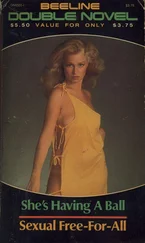Home Free: A Novel
Dan Wakefield
For The Dove,
who saw me through it
“I had a professor who said ‘Freedom is money.’”
“I prefer what Janis said freedom is.”
“What’s that?”
“‘Nothin’ left to lose.’”
“I dig it.”
He was there because he had promised.
Besides, he had no particular reason or urge to be anywhere else.
The promise was not that he would go to college at the University of Illinois at Champaign-Urbana but that he would get a college degree, in any thing, in any place. That’s all his father had asked when he gave him the money to do it. There wasn’t even a time limit on it though maybe that was assumed, that he’d do it in the four years it took most everyone else. He had meant to, but being booted out of one place and dropping out of another had set him back, and then he had to take time off to make some bread when he’d gone through what the old man had given him. That made the promise even heavier: he had taken the money and he’d damn well get the degree, no matter how long it took.
Ages it already seemed like.
He was scratching a mosquito bite and waiting for the instructor to show for this section of a gut course called in the catalog Survey of American Colonial History and known among students as George Washington One. He was idly looking over the class to see if he could spot some serious, plain-looking chick he could hit on later for class notes, when he suddenly saw her come into the room.
Not the serious, plain-looking chick.
This was something else.
She was wearing a short white dress, a thin gold chain at the waist, the rest of her dark, intense, feline; black hair fell with long luster down her back, dark eyes were topped by large brows and cupped beneath with deep half-moons, the eyes large and quick, giving the catlike suggestion to her face. Gene moved up out of the scrunch he had settled into in his chair, hoping she’d sit beside or near him but instead she went to the desk at the front of the room and with a graceful movement perched on the edge of it, her long legs, richly tanned, dangling.
There were nervous giggles. No one knew if this was the teacher or some kind of kooky chick trying for attention. She pulled out a cigarette and four jocks jumped to light it. More giggles. Gene didn’t move. The class bell rang and he didn’t mind it, even though at this advanced stage in what was finally a seven-year and four-college trip to the big B.A. that special sound usually worked on his nerves like a dental drill.
“I’m Louise Fern,” she said, “and this is History one oh three. Usually it’s a gut course. This time it won’t be.”
There were no more giggles.
At the end of the hour she was crowded by students, wanting attention, asking unnecessary questions.
Gene waited. He wasn’t afraid of waiting. He wasn’t a jock but women liked him, liked his lean concave posture, head bent for listening, even then somehow seeming taller than his medium height.
He knew all the moves, but he wasn’t thinking of games now. This was a new experience. Just when he hoped he had had them all. But this was decidedly different. It was like he had tunnel vision and Louise Fern was standing at the end of the tunnel. Filling it up.
He waited till just the two of them were left in the room.
“I’m going to buy you a drink,” he said evenly.
She looked at him sharp, then shrugged.
“Well, if I have no choice,” she said.
“You don’t,” he said smiling.
Neither do I , he thought.
He took her for the drink, then he took her back to her apartment, then he took her to bed. The next morning he said he intended to stay.
“We’ll see,” she said.
He stayed the rest of the academic year, hardly leaving except to shop for groceries, buy booze, score grass, and go to her lectures.
In bed, biting and tickling and pinching, they kidded about her being an Older Woman and him an Innocent Young Student. She was twenty-seven, he twenty-three. Sometimes they played teacher-student games. Like she would be the stern, spinsterish teacher and he would be the hood she had flunked in her course who had come to force his cruel lust upon her.
They got into each other’s heads as well as bodies.
He saw how history was for her, how she got high on it. When she talked about The Closing of the Frontier, or The Rise of the Railroads, her voice took on a whole other quality, a husky intensity. He read everything she told him to, stuff that especially turned her on and then they’d discuss it. He could see it, in her, but he couldn’t feel it in himself like that. He had never been able to get off on a subject, there were some he dug more than others, that was all.
She asked if there hadn’t been anything else, aside from academic subjects, that really turned him on, like playing some kind of music or sports.
“Running,” he said.
He told her how it gave him a clean feeling, both in his head and his body. He imagined when he ran that the wind was really going through his head, clearing it out, blowing away the accumulated cobwebs of old tangled memories, blowing away the bilge of bad dreams, trash of turmoil, dumpings of dead arguments, dumb deeds. Clean. He went out for track in high school but was cut because he lacked the competitive spirit, a failing the coach said probably meant he was a fairy. He didn’t care about winning, he didn’t want ribbons, just the feeling that came from the running.
Lou said she could dig, it sounded like what good dope did sometimes.
They liked doing grass and hash but they didn’t drop acid. Lou didn’t want to mess with her head since she liked it the way it was; Gene didn’t go for the idea of something “expanding” his mind, he wanted to turn the sucker down.
He said it showed they agreed on the basics.
He had to move out a few days when her parents came to visit. They were hard-shell Baptists from Arkansas and they assumed their baby daughter, special as the youngest of four, would remain a virgin until she was married. They didn’t even know she smoked cigarettes much less dope. Before their visits she eliminated the deep orange nicotine stains from her fingers by scrubbing them over and over with lemon juice.
Gene got to meet them on the ruse he was one of her students dropping over to get an assignment he’d missed. She asked him to stay and have macaroons and lemonade with them. Not looking at Lou he said to her parents, “Your daughter has taught me more than any teacher I ever had.”
“No, no,” said Lou, choking on her lemonade.
“Louise has always been modest,” her father said proudly.
“She never tells us,” her mother said wistfully, “of her accomplishments.”
Sitting stiff in his chair Gene feared he might fart or say “Fuck!” so excused himself after the one macaroon.
When they’d gone and Gene could come back Lou got some specially good hash and they fucked and talked all night. She asked if his parents would visit or he visit them and he said how his mother had died his first year of high school and Dad, retired and tired, lived with Gene’s much older married sister and her family in Chicago and frankly Gene couldn’t face him again till he had the degree.
“Your albatross,” Lou said.
“A real bummer.”
Mostly they were high, sometimes just on each other. What the counselors always told Gene he lacked was not intelligence but motivation. Now he had it. Her. She shared his bent for daring, difference, doing things your own way, any way but dull.
The song they played all the time, kind of like their personal anthem, was “The Harper Valley P.T.A.” It had come out right when they met, September of ’68, and it matched their mood. The sultry singsong of Jeannie C. Riley telling how all the respectable folk of this little town were hypocrites living wild behind the proper front they put up. It was their kind of song, A Fuck You kind of song, and they liked to think of it as saying “Fuck You” in particular to Champaign-Urbana, Illinois, and what they regarded as its monster-sized, tiny-minded university.
Читать дальше












